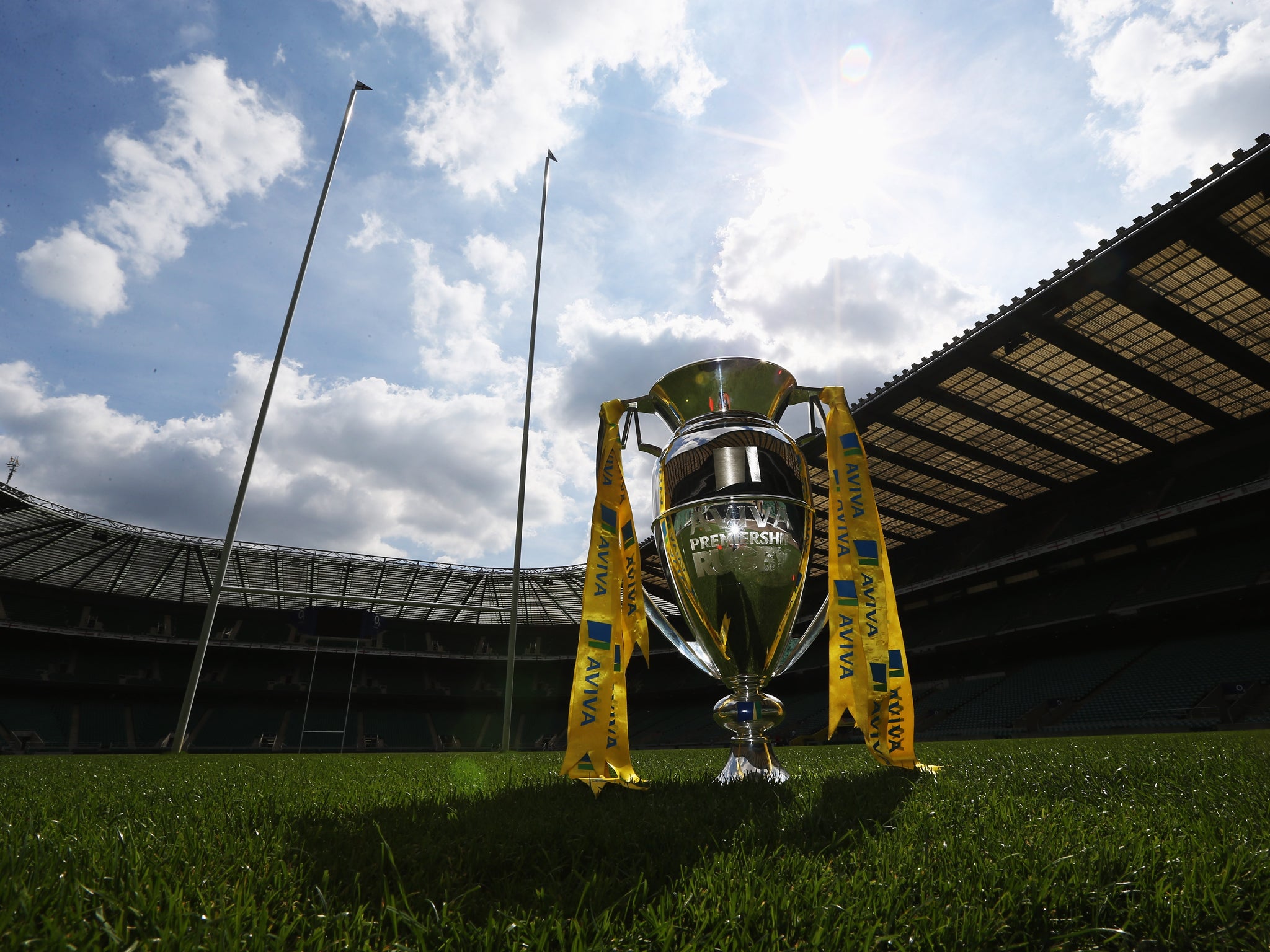Five rugby players fined over ‘recreational’ drug abuse
RFU gives them £5,000 penalty but refuses to name the guilty even to their own clubs

Your support helps us to tell the story
From reproductive rights to climate change to Big Tech, The Independent is on the ground when the story is developing. Whether it's investigating the financials of Elon Musk's pro-Trump PAC or producing our latest documentary, 'The A Word', which shines a light on the American women fighting for reproductive rights, we know how important it is to parse out the facts from the messaging.
At such a critical moment in US history, we need reporters on the ground. Your donation allows us to keep sending journalists to speak to both sides of the story.
The Independent is trusted by Americans across the entire political spectrum. And unlike many other quality news outlets, we choose not to lock Americans out of our reporting and analysis with paywalls. We believe quality journalism should be available to everyone, paid for by those who can afford it.
Your support makes all the difference.Five players attached to Premiership clubs – elite performers, by definition – tested positive for so-called “recreational” drugs last season, according to latest Rugby Football Union figures. None of them will be disciplined, or even publicly identified. Instead, they have been fined £5,000 apiece and channelled towards assessment and counselling programmes designed to put them back on the straight and narrow.
The knee-jerk reaction around the sport yesterday was that this unusually tolerant approach had created a two-tier system – an argument reinforced by the fact that one amateur player had copped a two-year ban after testing positive for cannabis and cocaine. But those most closely connected to the Illicit Drugs Prog-ramme introduced by the RFU after the chemical abuse scandals at Bath in 2009 were steadfast in their view that this was the most enlightened way of dealing with the problem.
“It is important to remember that these tests were not conducted on a match day and were not seeking to expose performance-enhancing misuse,” said one source familiar with the system. “They were specifically carried out on an out-of-competition basis to alert us to the use of recreational drugs as part of a wide-ranging approach to player welfare, and were over and above the tests carried out under the official anti-doping programme common across sport in the United Kingdom. We see this as an additional safeguard.”
Only a tiny handful of individuals – all from the sports medicine establishment – are aware of the identity of the five players. Names have even been kept secret from rugby directors and head coaches. Had positive results been recorded under the match-day testing regime, on the other hand, the culprits would have been hauled before a disciplinary tribunal and suspended.
One prominent figure in trouble yesterday for alleged abuse of a different stripe was Mike Phillips, the Wales and Lions scrum-half, who appeared before the board of the French club Bayonne, for whom he has played since 2011, to answer a charge of showing up drunk to a video analysis session. Despite the accusation, Phillips was included in a 35-man Wales squad for the Six Nations’ champions’ autumn internationals.
“There’s a slight concern, so we’ll sit down, have a quiet chat and see where his head’s at and what he’s doing,” said Warren Gatland, the Wales coach, who drafted in three uncapped players in the Ospreys wing Eli Walker, the Cardiff Blues centre Cory Allen and the Scarlets scrum-half Rhodri Williams. “All I can say is that over the last campaigns with us, Mike’s been great. There’ll be no sanction from us over this. It’s a French decision.”
Two Lions Test backs, the wing Alex Cuthbert and the centre Jamie Roberts, were omitted because of injury. So too, for more worrying reasons, was the 32-year-old hooker and former captain Matthew Rees, who has been diagnosed with testicular cancer and will undergo surgery later this week. “It’s a tough time for him,” Gatland commented. “He has our full support. Our fingers are crossed that it works out for him.”
Stuart Lancaster, the England coach, sent 10 of his 34-strong squad back to their clubs yesterday for this weekend’s Premiership activity. The fact that two full-backs, Alex Goode of Saracens and Ben Foden of North-ampton, were among them suggests that Mike Brown of Harlequins is a clear first choice in the position. The decision not to release Lee Dickson of Northampton suggests he will play a part at scrum-half against Australia a week on Saturday while the Quins flanker Chris Robshaw is favourite for another tour of duty as captain.
Join our commenting forum
Join thought-provoking conversations, follow other Independent readers and see their replies
Comments